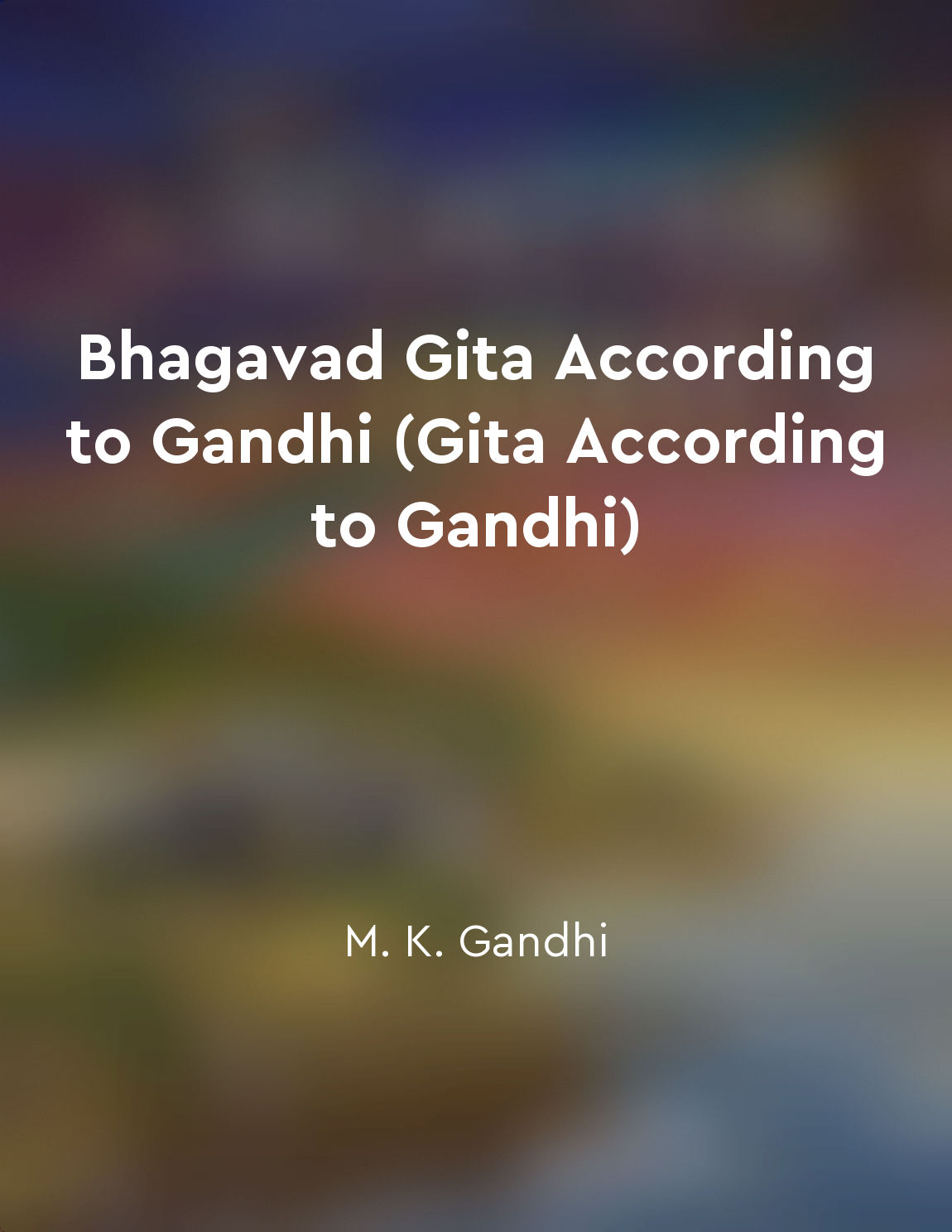The concept of karma underscores personal responsibility from "summary" of The Buddha and His Dhamma by Bhimrao Ramji Ambedkar
The law of karma is a fundamental principle in Buddhism, emphasizing the accountability of individuals for their actions. According to this doctrine, every action has consequences, whether good or bad, which will eventually come back to the doer. In essence, karma underscores the personal responsibility of individuals for their deeds, thoughts, and words. This concept of karma serves as a moral compass, guiding individuals to act with awareness and mindfulness. By understanding that their actions will shape their future experiences, individuals are encouraged to make choices that align with ethical values and principles. In this way, karma acts as a motivator for individuals to cultivate positive qualities such as compassion, generosity, and wisdom. Moreover, the concept of karma promotes a sense of agency and empowerment within ind...Similar Posts
The Upanishads expanded philosophical thought in the Vedic Period
The Upanishads, a collection of philosophical texts, played a crucial role in expanding philosophical thought during the Vedic ...

Stay disciplined even when things get tough
When the going gets tough, it's easy to give up. It's easy to throw in the towel, to say, "I've had enough, I can't do this any...
Avoid bad company and negative influences
It is said that a man is known by the company he keeps. Therefore, it is essential to be cautious and wise in choosing the peop...
Concept of karma explained
The concept of karma is one of the central teachings of the Bhagwat Gita. Karma is the law of cause and effect, the principle o...

Path to selfrealization
The path to self-realization is the process by which one strives to understand their true identity and purpose in life. This jo...

Strive for selfrealization
The Bhagavad Gita teaches us that the ultimate goal of human life is to realize the true self. This realization is not merely a...

The Torah is written in Hebrew
The Torah, the sacred text of Judaism, is written in Hebrew. This ancient language has its roots dating back thousands of years...
Sanyam aur upyogi vichar rakhne ka mahatva samjhein
Sanyam aur upyogi vichar rakhne ka mahatva samjhein. Sanyam ka arth hai apne indriyon ko control karna aur upyogi vichar rakhne...
Wisdom
Wisdom is the ability to see and understand the truth beyond the surface level. It is the insight that comes from deep contempl...

The interconnectedness of body, mind, and spirit is essential
The Buddha taught that the body, mind, and spirit are deeply interconnected. He emphasized the importance of understanding this...
